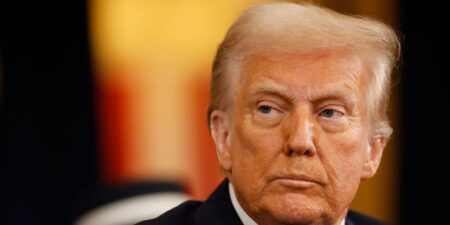Extending the U.S. debt ceiling will be one of the first fiscal matters in need of attention by the new Congress and president. This critical action allows the government to continue borrowing to meet its legally binding financial obligations. Failure to raise the limit could have severe consequences and does nothing to improve the U.S. fiscal outlook.
An After-The-Fact Limit
The U.S. government, the largest borrower in the world, must borrow to cover the gap between what it spends and what it collects in taxes. The Congress periodically authorizes increases in the amount of money the government is allowed to borrow, known as the debt ceiling.
Previous spending and tax policy decisions drive the need to borrow, making the ceiling an ineffective tool for fiscal control. Refusing to increase the limit, which some lawmakers support, does nothing to control spending: It simply impedes the U.S. from paying its bills on time.
Extending the debt ceiling isn’t like getting an increase on a credit card limit that would allow for new purchases. It’s more of a limit on how much can be borrowed to pay off existing debts — not that borrowing to pay off debts is a best practice, but it’s at least better than borrowing to spend more. Failing to raise the limit isn’t like cutting up a credit card; it’s more akin to tearing up the outstanding bills.
Suspended since 2023, the ceiling was reinstated on January 2, driving a need to pass legislation to increase it within the next few months. In the meantime, the Treasury Department will take what are known as extraordinary measures to move funds around or otherwise delay certain payments to buy some time until legislation is enacted.
Financial Facilitation Or Control?
While Congress has imposed a debt limit for much of the past century, its original intent centered on streamlining Treasury operations rather than forcing financial discipline. Instead of requiring the department to seek congressional approval for each individual bond issuance—as was the case previously—Congress granted Treasury the authority to issue debt up to a predetermined limit.
In recent decades, however, increases to the ceiling have become highly charged politically and are sometimes inaccurately characterized as reckless actions adding to the national debt tab. Moreover, the severe consequences potentially arising from failing to raise the limit has created an incentive for lawmakers to engage in political brinksmanship and extract concessions in the consideration of such must-pass legislation.
Could The U.S. Default On Its Bonds?
As the debt limit approaches, concerns arise about the U.S. potentially defaulting on its debt obligations, particularly payments to bondholders.
The term default is often used imprecisely in the context of a failure to raise the debt ceiling. According to the International Monetary Fund, a country is considered in sovereign debt default when it fails to meet its scheduled payments to bondholders. But that is highly unlikely to occur in the United States where annual tax collections far exceed the amount needed to service the national debt. Accordingly, prioritizing bond payments would at least prevent a technical default on Treasury securities.
The greater challenge lies in deciding which other commitments to honor on a timely basis. Delays could affect programs like Social Security and Medicare, as well as payments to federal employees and contractors. This situation would force the Treasury to make difficult choices about which financial obligations to pay and which to defer.
Conflicting Laws
Congress implicitly authorizes the executive branch to incur debt through annual appropriations and other spending and tax policies contained in permanent law. The executive branch is legally bound to spend as directed by Congress. This principle is rooted in the 1974 Budget Act, which prohibits the executive branch from impounding (or refusing to spend) funds lawfully provided.
Paradoxically, a failure to raise the debt limit would compel the executive branch to spend as mandated by Congress but would also prohibit it from borrowing the necessary funds to do so. The executive branch would then be forced to violate one type of statute (spending laws) or another (the debt ceiling).
The 14th Amendment to the Constitution makes clear that the validity of the public debt shall not be questioned. That seemingly clear mandate clashes with the notion of a debt ceiling.
Full Faith And Credit Concerns
If the debt ceiling is not raised, the economic, national security, and operational consequences could be severe, far-reaching, and long-lasting. Most notably, the full faith and credit of the United States would be severely undermined. That could drive up interest rates, weaken the U.S. dollar and its role as the world’s reserve currency, and erode global financial stability given the importance of Treasury securities.
The nation’s recurring debt ceiling crises do not reflect the nation’s economic capacity but are a failure of political leadership. In a recent social media post, incoming president Donald Trump highlighted the treacherous nature of the issue. It will now be up to him and congressional leaders to ensure the enduring and iron-clad guarantee of the United States to honor its financial commitments remains intact.
Read the full article here
















